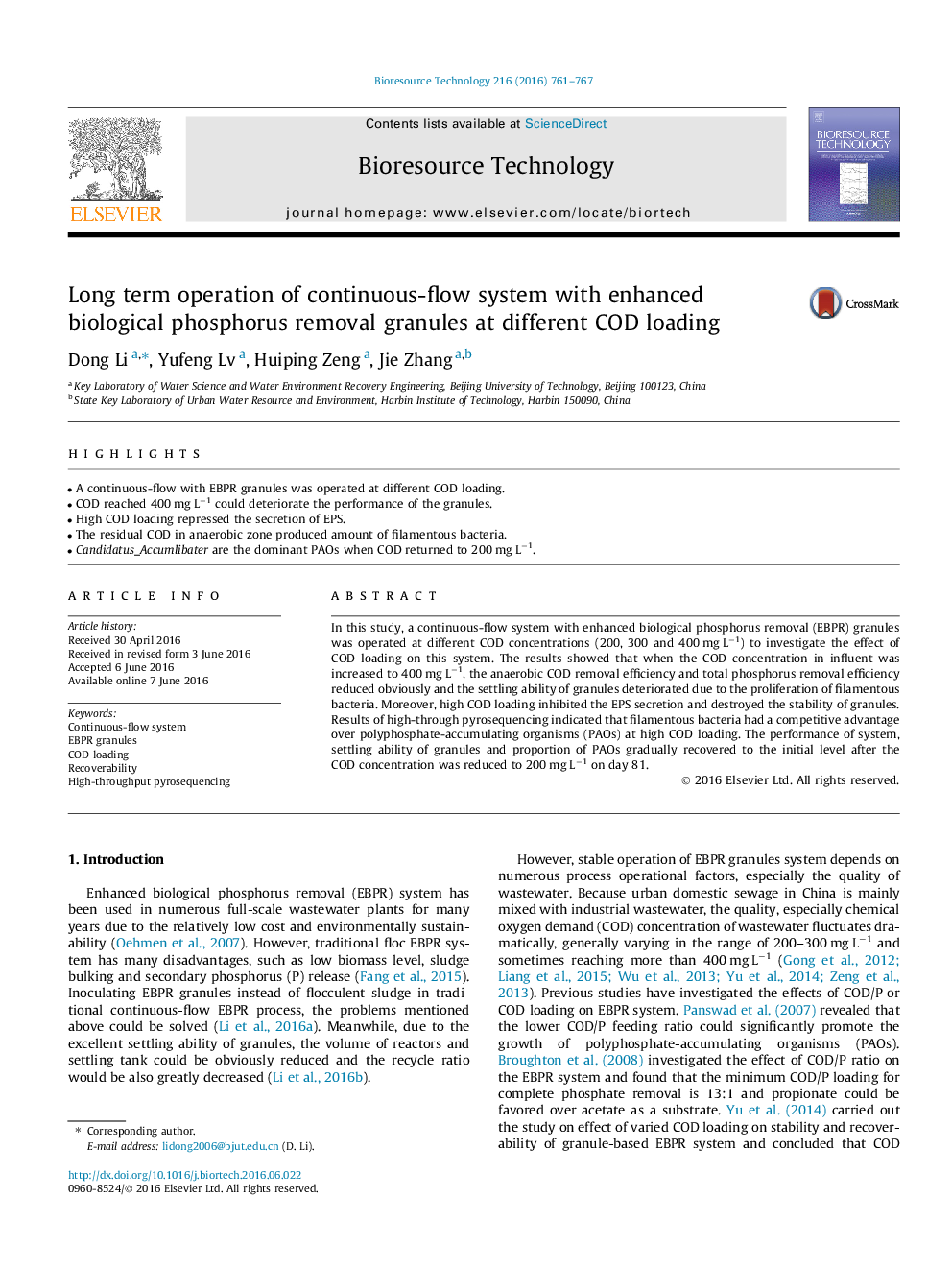| Article ID | Journal | Published Year | Pages | File Type |
|---|---|---|---|---|
| 7070832 | Bioresource Technology | 2016 | 7 Pages |
Abstract
In this study, a continuous-flow system with enhanced biological phosphorus removal (EBPR) granules was operated at different COD concentrations (200, 300 and 400 mg Lâ1) to investigate the effect of COD loading on this system. The results showed that when the COD concentration in influent was increased to 400 mg Lâ1, the anaerobic COD removal efficiency and total phosphorus removal efficiency reduced obviously and the settling ability of granules deteriorated due to the proliferation of filamentous bacteria. Moreover, high COD loading inhibited the EPS secretion and destroyed the stability of granules. Results of high-through pyrosequencing indicated that filamentous bacteria had a competitive advantage over polyphosphate-accumulating organisms (PAOs) at high COD loading. The performance of system, settling ability of granules and proportion of PAOs gradually recovered to the initial level after the COD concentration was reduced to 200 mg Lâ1 on day 81.
Related Topics
Physical Sciences and Engineering
Chemical Engineering
Process Chemistry and Technology
Authors
Dong Li, Yufeng Lv, Huiping Zeng, Jie Zhang,
